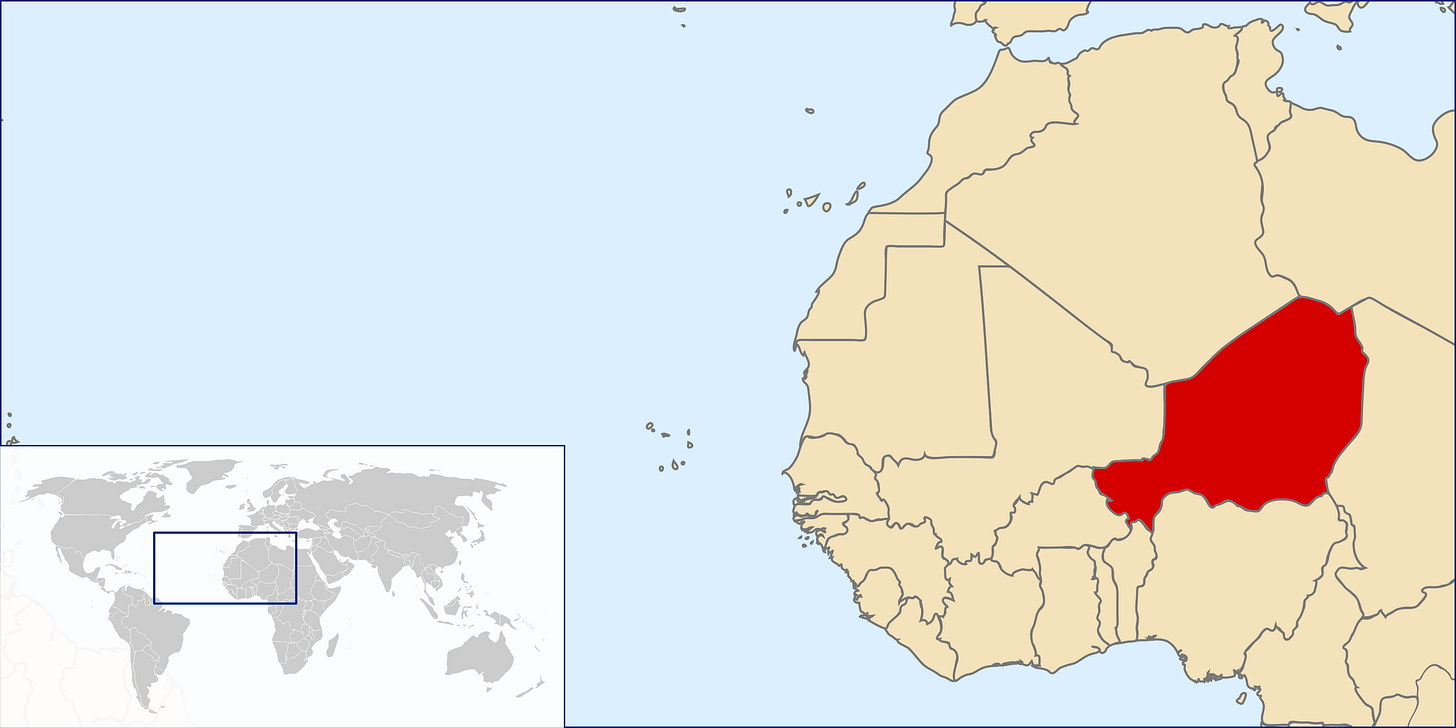🔅 Did AI Write South African President's Speech?
Plus: Niger's New Leaders Abolish an Anti-Smuggling Law, Bringing Back the Dodo Bird, And more
Photo of the day
Lesotho

Money Matters
🔴 Nigerian SE: 71,353.81 (-0.44%)
🟢 Johannesburg SE: 75,369.88 (+0.23%)
— Ghana SE: 3,171.70 (0.00%)
🟢 Nairobi SE: 92.47 (+1.38%)
🟢 US S&P 500: 4,558.63 (+0.18%)
🟢 Shanghai Composite: 3,038.55 (+0.23%)
*Data accurate as of the close of markets across the continent
Brief & Bright: Africa's Top Five
Did AI Write South African President's Speech?
The South African presidency is investigating whether President Cyril Ramaphosa’s recent speech was partially written by an AI chatbot. Some people online noticed that a section of the speech sounded a little too robotic to have come from the president himself or his speechwriters. But the president’s spokesman insists that they don’t use AI for speeches and that the questionable parts were written by the education department. Still, they’re looking into it and promise to take action if necessary. Looks like even presidents aren’t immune to AI taking over their jobs.
Niger’s New Leaders Abolish an Anti-Smuggling Law
In a move that must have the EU scratching its head, the leaders of Niger have decided to overturn a law that criminalized migrant smuggling. This law was put in place eight years ago to help stop the flow of people from Niger to Libya and then to Europe. But since the coup in July, President Mohamed Bazoum has been replaced by Gen Abdourahmane Tchiani, who has declared himself the new head of state, and it looks like he's making some bold moves. This repeal of the anti-smuggling law shows that the junta in Niger is not afraid to assert its authority and go against international pressure. The EU had suspended all security cooperation with Niger, and even the US and France have refused to recognize Gen Tchiani as leader. But the junta is clearly sending a message, and this will be a major blow to the EU's strategy for managing migration flows from Africa. But some have welcomed the news, such as those who used to make big bucks from people trafficking. One trafficker said he would go back to it if the law was eased because it earned him $6,000 a week—way more than any other job he could find.
A Startup's Wild Idea: Bringing Back the Dodo Bird
Taking a cue from Jurassic Park, a US-based startup, is trying to resurrect the iconic dodo bird from extinction. They’ve partnered with a conservation nonprofit in Mauritius to ensure the bird has a sustainable home when/if it succeeds. Talk about a second chance at life! The dodo used to roam the Indian Ocean island nation until it met its demise in 1662 when Dutch soldiers who arrived on the island caused its extinction through deforestation, hunting, and the destruction of their nests. The bird was flightless due to a lack of predators before the arrival of these soldiers.
Kenya's Taxing Situation: Visitors and Citizens Hit with $500 Fee for Personal Items
In Kenya, the government has come up with a new way to make money: taxing tourists and citizens returning home. The Kenya Revenue Authority (KRA) says anything worth $500 or more—new or used—is subject to taxation. This has caused an uproar, with people saying it will scare away tourists and give the country a bad rep. Even some MPs are calling out KRA officials for harassing tourists and making the country look bad. The Tourism Minister is not happy either, saying this is why the number of visitors has been dropping. President William Ruto's government has been introducing all kinds of new taxes, even though he promised to ease the financial burden on families when he was elected.
Zimbabwe's Brain Drain: Mugabe's Legacy of Education Goes to Waste
Say what you will about Robert Mugabe, but the man knew the importance of education. During his 37-year reign in Zimbabwe, he allocated as much as 23% of the budget to schools and universities, making it the most literate country in Africa. Too bad it didn't pay off—thanks to years of mismanagement and rigged elections, the country is now a sinking ship and its citizens are jumping overboard. Where are they landing? In the UK, of all places, its former coloniser. With a worthless currency and bleak job prospects at home, it's no wonder that teachers, bankers, nurses, accountants, engineers, and IT workers are all packing their bags. There has been a fivefold increase in visas granted to Zimbabwean health and social care workers in the year to June. Sadly, the country's biggest export is now its people, and many blame the leadership (or lack thereof) on Mugabe's successor, Emmerson Mnangagwa.
Food for Thought
“Don't procrastinate or you will be left in between doing something, having something and being nothing"
— Ethiopian Proverb








